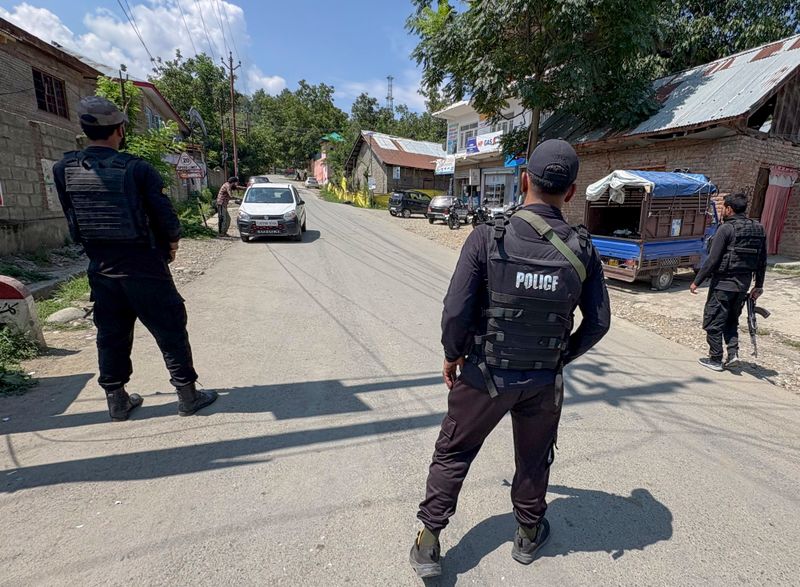
In a dramatic escalation of violence, two Army soldiers were killed and two others injured during an overnight gunfight with terrorists in Jammu and Kashmir’s Kulgam district. This encounter, marking one of the longest anti-terror operations in the Valley, has now entered its ninth day as of Saturday, officials reported.
The operation, conducted by the Army’s Srinagar-based Chinar Corps, has already seen the elimination of two terrorists. The encounter began on August 1 after security forces launched a cordon and search operation in a forested area at Akhal in south Kashmir, following specific intelligence inputs about terrorist presence.
Ongoing Operation and Tributes
In a poignant tribute on social media platform X, the Chinar Corps honored the fallen soldiers, L/Nk Pritpal Singh and Sep Harminder Singh, acknowledging their “supreme sacrifice” in the line of duty. “Their courage and dedication will forever inspire us,” the post read, as the Army expressed solidarity with the bereaved families. The operation, they confirmed, is still ongoing.
Meanwhile, the number of injured security personnel has risen to nine, with two additional soldiers wounded in the recent exchange of fire. Senior police and Army officials, including Jammu and Kashmir Police chief Nalin Prabhat and the Army’s Northern Commander Lt Gen Pratik Sharma, are closely monitoring the situation around the clock.
Strategic Deployment and Challenges
Security forces have intensified their efforts, deploying drones and helicopters to track down the remaining terrorists in the dense forest area. Para commandos are also on the ground, assisting in the operation to neutralize the hiding militants. The prolonged nature of the operation highlights the challenging terrain and the complexity of the mission.
The identity and group affiliation of the slain terrorists remain unconfirmed, adding another layer of complexity to the ongoing investigation. This operation is a stark reminder of the persistent threat of terrorism in the region and the continuous efforts required to combat it.
Historical Context and Expert Insights
The current operation is reminiscent of past prolonged engagements in the region, such as the 2016 Pampore encounter, which lasted over three days. Experts suggest that the extended duration of such operations often points to well-entrenched terrorist positions and the challenging geography of the region.
According to defense analyst Major General (Retd) Harsh Kakkar, “Operations in Kashmir often require meticulous planning and patience due to the difficult terrain and the possibility of civilian presence. The use of advanced technology like drones is crucial in minimizing casualties and ensuring mission success.”
“The courage and dedication of our forces in such operations are commendable. Their sacrifices ensure the safety and security of the nation,” said Kakkar.
Implications and Future Prospects
The ongoing operation in Kulgam underscores the persistent threat posed by terrorism in Jammu and Kashmir. It also highlights the need for continued vigilance and strategic planning by security forces to address these challenges effectively.
As the operation progresses, the focus remains on neutralizing the remaining threats and preventing any further loss of life. The government and military are expected to review the strategies employed in this operation to enhance future counter-terrorism efforts in the region.
The situation in Kulgam continues to evolve, with security forces committed to restoring peace and stability in the area. The nation watches closely as the operation unfolds, hoping for a swift and successful resolution.





